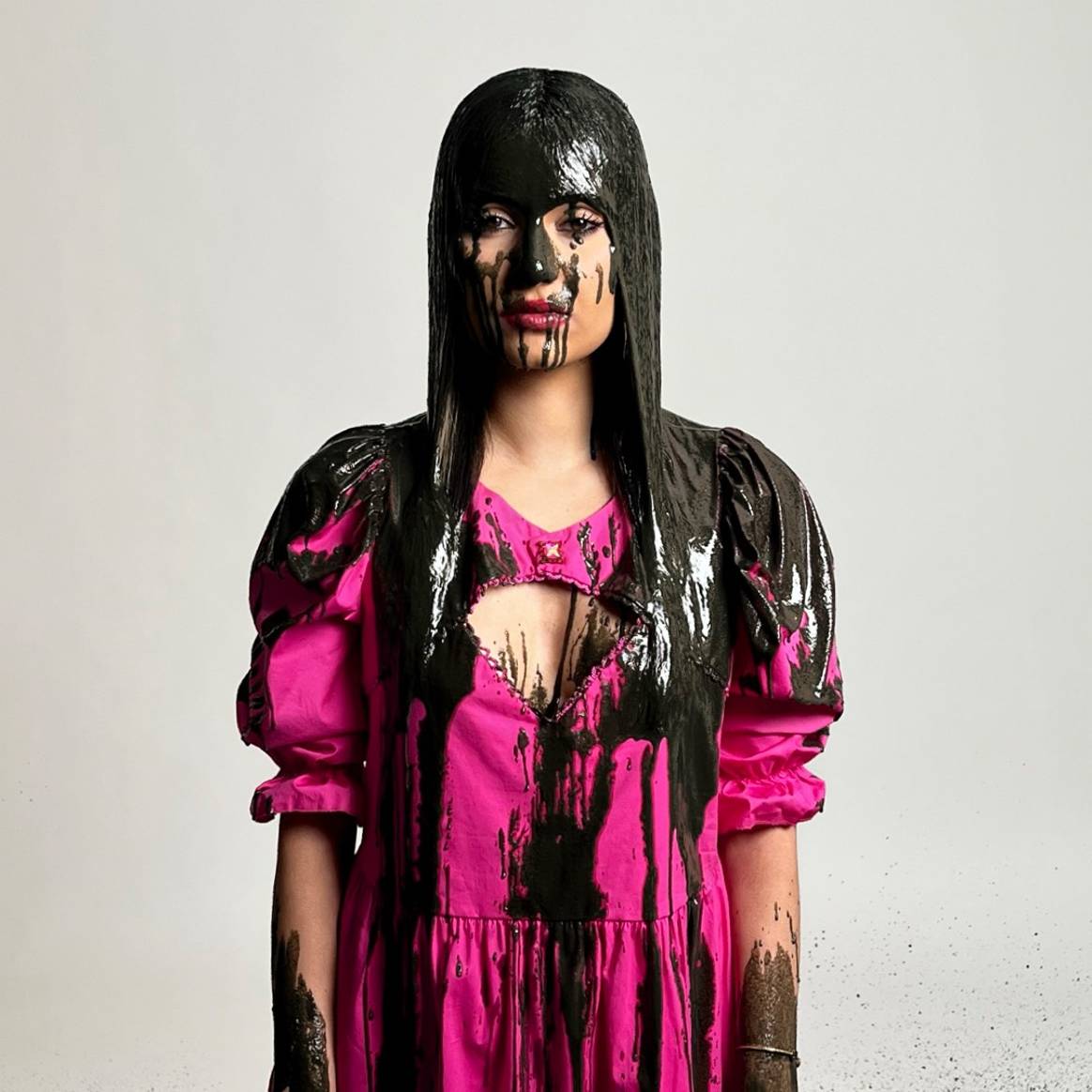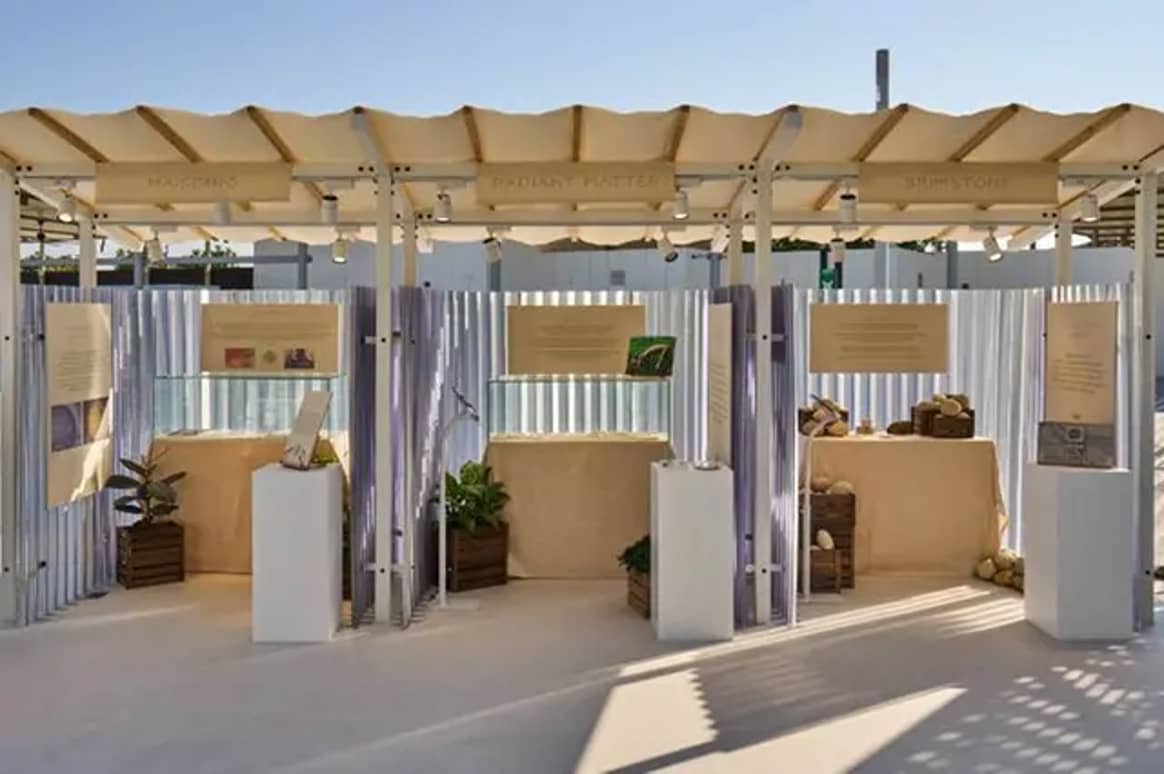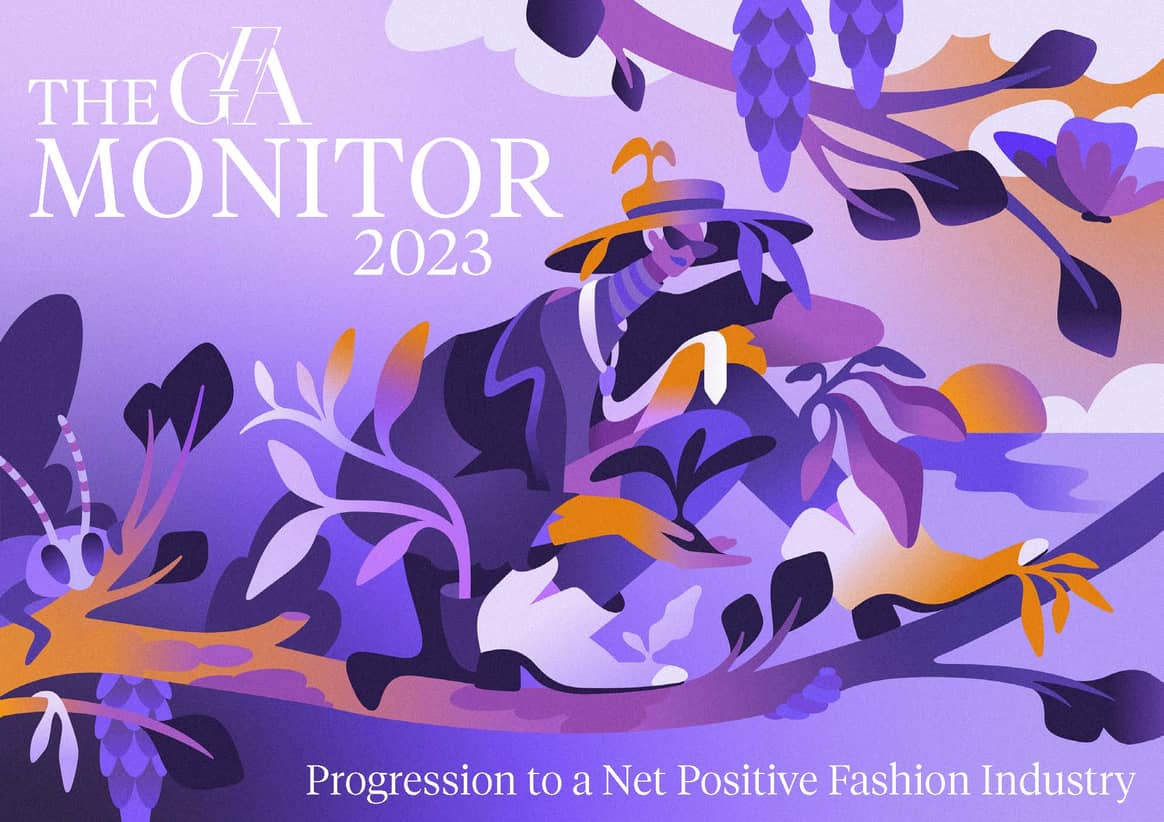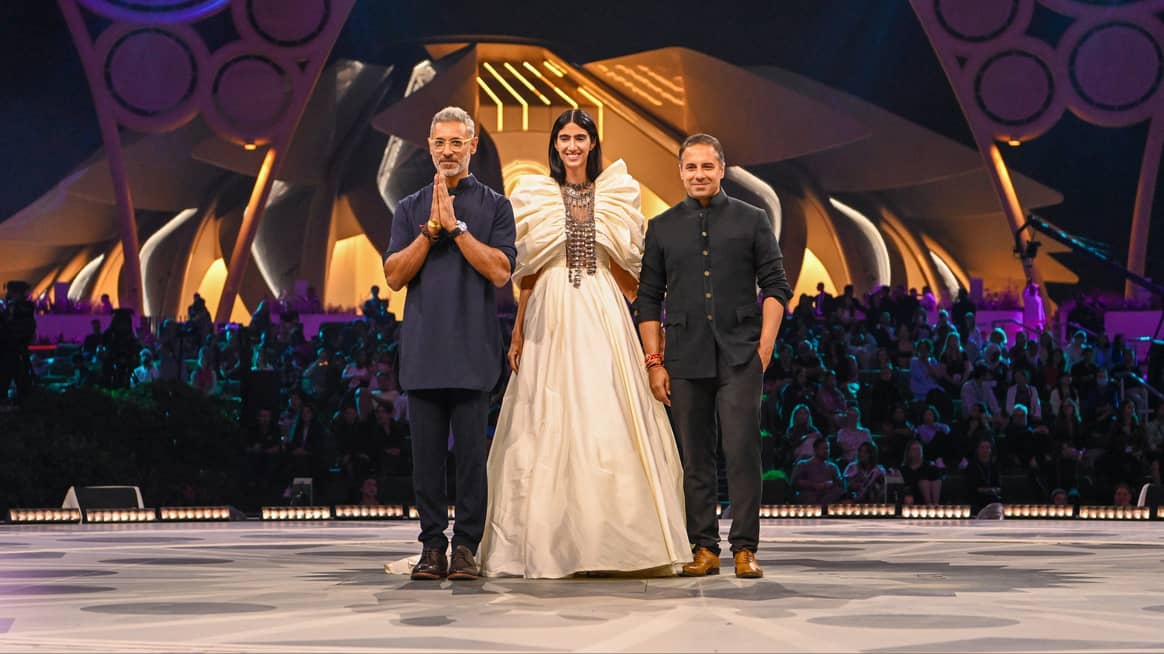Engaged in the clothing industry for 20 years.

Everything the fashion industry needs to know about COP28
As the UN Climate Change Conference (UNFCC) COP28 draws to a close,
FashionUnited is looking back on all of the notable events that took place
over the two week period, many of which hoped to define the sustainable
future of fashion. Held in Dubai, this year’s COP climate summit brought
together delegates from 199 parties to continue in the mission of outlining
steps to limit the rise of global temperatures.
Out of those attendees and participants were a large number of
individuals from the fashion industry, each hoping to aid in such
decision-making through panel discussions, presentations and newly
established partnerships in order to bring forth solutions.
ASBCI, N Brown and Style 3D discuss COP expectations
Conversations surrounding fashion’s place at COP already began prior to
the event. A webinar held by digital fashion solutions company Style 3D
posed the question: “What does the fashion industry hope to achieve from
COP28 this year?” It was up to participants Gary Know, vice chair of the
Association of Suppliers to the British Clothing Industry (ASBCI), and
Joseph Mountain, the sustainability lead at British e-tailer N Brown, to
deduce an answer. The duo both spoke on the need for consumer feedback and
concrete action when it comes to achieving goals, as well as where the
industry needs to be scaling back in order to ensure sustainable long-term
growth.
European Parliament discusses shift towards sustainable products
Just days ahead of COP28, similar discussions were ongoing at the
European Parliament, where key figures in the EU fashion industry gathered
for the ‘Fashionscapes of Transformation’ event. Next to highlighting
fashion’s role in fulfilling the Paris Agreement, participants also
stressed the importance of phasing out fossil fuels in fashion-related
policies. Commenting on the topics at hand, Alessandra Moretti MEP, said:
“I’m convinced that the fashion industry can set an example for other
industries in taking decisive actions in line with global climate goals,
particularly as the world gears up for COP28 and also in light of the
European Parliament’s announcement last week of making a fossil fuel phase
out. The Ecodesign for Sustainable Products Regulations, which I have the
honour to be the reporter of, plays a pivotal role in this path, and in
reshaping the fashion industry towards sustainability.”
Bestseller and H&M Group to invest in Bangladesh off-shore wind project
In fact, collaborations are a key part of what the conference is all
about, as evidenced in a joint agreement made by fashion industry leaders
to fund the first off-shore wind project in Bangladesh. Danish fashion
conglomerate Bestseller and Swedish fast fashion giant H&M Group
established the deal alongside Global Fashion Agenda (GFA) and developer
Copenhagen Infrastructure Partners (CIP) in a bid to “significantly
increase the availability of renewable energy” in the manufacturing
country.
Now in the early-stages of development, the project is expected to
commence in 2028 and would have a reported capacity of around 500MW,
supporting the country in reaching its goal of supplying 40 percent of its
power from renewable sources by 2041. Speaking on the initiative,
Bestseller CEO, Anders Holch Povlsen, said in a release: “By pledging to
invest significantly in the offshore wind park in Bangladesh, we can
support the availability of renewable energy in one of our key
manufacturing countries and aim to reduce climate emissions from our supply
chain. It’s a responsibility we share with the global fashion industry, and
we encourage other fashion companies to share the opportunity with us.”

Campain and Vogue Arabia. Credits: Public Opinion, Fossil Fuel Fashion
Campaign.
Climate activist launches ‘We Wear Oil’ campaign alongside Vogue Arabia
In response to the controversial claims made by COP28 president, Sultan
Al Jaber, who suggested there was “no science” to support the need to
phase-out fossil fuels, Iranian-American activist, Sophia Kianni, took to
social media to share a campaign to raise awareness of fashion’s intrinsic
link to such damaging materials. Kianni’s ‘We Wear Oil’ initiative was
established alongside Fossil Fuel Fashion Campaign and Vogue Arabia, and
called on the industry to take accountability for the promises made in the
Paris Agreement and ultimately rule out materials created using fossil
fuel-based fibres. Imagery and videos from the campaign see Kianni caked in
“oil” as she speaks on the use of synthetics and the harm they have caused,
and continue to cause, on the environment.
Stella McCartney’s Sustainable Market concept arrives at COP28
Continuing in her efforts to bolster the presence of sustainable
start-ups and circular solutions, British designer Stella McCartney brought
her Sustainable Market concept to COP28, building on its latest edition
which had previously served as a backdrop for her Paris Fashion Week show
in September. The exhibition-like concept, this time dubbed ‘Innovating
Tomorrow’s Solutions’, highlighted 15 next-gen pioneers including
regenerative agriculture platforms and plant-based alternative producers,
some of which are already long-standing partners of McCartney’s eponymous
brand. During the event, the designer further spoke on the key achievements
published in her latest Impact Report, as well as the details of a new PETA
campaign and the launch of a biologically recycled parka jacket, made in
collaboration with Protein Evolution.

COP28. Credits: Stella McCartney.
Fashion Revolution demands further transparency for production, targets
and regulations
COP28 attendee Fashion Revolution was a prominent participant in the
climate event this year. However, while the organisation regularly took to
the stage to share its voice, it also continued the conversation outside of
the occasion. In an open letter to fashion brands and policymakers, Liv
Simpliciano, policy and research manager, called on both to ensure that
transparency and corporate accountability on environmental and human rights
issues were more widely addressed, either through binding regulations or
furthering access to information.
Simpliciano criticised the current lack of action when it comes to
defunding new fossil fuel projects, as well as fashion’s tendency to use
COP and other platforms to outline “glossy” new commitments that later run
past their time frame or fail to communicate what they actually achieve.
She added: “In the absence of disclosed evidence, it is difficult to
understand if the fashion industry is turning things around. We don’t need
more commitments – we need more progress.”
GFA presents industry’s progress towards net-zero
In light of these demands for more transparency, it appears that some
leading organisations in the industry are already taking note. Global
Fashion Agenda (GFA) used its platform at COP28 to highlight the progress
the industry has made towards a net-zero future, in what was its second
edition of The GFA Monitor. Data collected by the GFA revealed that the
majority of its 900 participants support industry alignment on 27 action
areas proposed by the organisation. Yet, while 88 percent of respondents
had claimed to have set targets to adopt responsible purchasing practices,
only 63 percent had confirmed to be measuring progress when it came to
these targets, despite brands and suppliers expressing support to reach
calibration on this matter.

LVMH outlines new alliances and refreshed deals to bolster efforts
Luxury conglomerate LVMH said that it was “more committed than ever to
its environmental targets”, and stepped up its game this year through a
series of new initiatives and collaborations dedicated to protecting
biodiversity and the environment as a whole. Among its ongoing efforts, the
group signed a new agreement with the Foundation For Amazon Sustainability
(FAS) to combat deforestation, striving for the goal of regenerating five
million hectares of wildlife habitat worldwide. To support the project,
LVMH said it would be making a one million euro donation. Alongside this,
the multinational further pledged its allegiance towards soil preservation
initiatives increasing soil carbon storage capacity and published the
results of its partnership with Circular Bioeconomy Alliance (CBA)
introduced at COP27, through which it said it had identified and trained
500 farmers around Lake Chad, among other achievements.
Chalhoub Group and LVMH come together to define targets of
Emirates-based retail
LVMH had also struck up a deal with property firms Chalhoub Group, EMAAR
Malls Management, Majid Al Futtaim Properties and Aldar Properties PJSC,
forming an alliance that would aim to formulate sustainability targets for
the Middle East retail market. The cooperation hopes to work together on
the understanding and management of energy consumption across their
properties, stores and common areas, alongside the development of an
eco-design checklist, among other initiatives.
Leaders in Italian fashion talk about the country’s efforts towards a
sustainable future
In contrast, Italy’s Camera Nazionale della Moda Italiana (CNMI) came
together for a day of talks and panels to discuss the country’s own
responsibility in the realm of sustainability. The event was led by
chairman of the CNMI Carlo Capasa, who, in his own talk, outlined some
future developments that were a part of the fashion organisation’s
sustainability roadmap. These included a collaboration with the Ellen
MacArthur Foundation, the development of digital passports and its
cooperation with the UN Ethical Fashion Initiative on defining ESG
specifics for the fashion industry as a whole, in order to ensure
comprehensive assessments.
Capasa was joined by a league of other industry players, including
executives and management from the likes of Milano Fashion Institute,
Gucci, Diesel, Prada Group and Michelangelo Pistoletto Foundation. Gucci’s
Antonella Centra, executive vice president, general counsel of corporate
affairs and sustainability, spoke on the importance of creating synergies
across the luxury sector, a sentiment that was also shared by Diesel’s
sustainability ambassador, Andrea Rosso. For Prada Group, meanwhile,
sustainability and social responsibility senior manager, Pamela Bussi, said
that education was key to generating change and used the opportunity to
highlight some of the luxury group’s partnerships, namely with UNESCO.

Credits: COP28 UAE Communications
COP hosts first Sustainable Fashion Show
In what was a first for COP and a further affirmation that fashion was
one of its central focuses, the event hosted its first ever Sustainable
Fashion Show at the Al Wasl Plaza. International designers took to the
stage to show their collections all in the name of sustainability – as well
as inclusivity, as seen in the diverse selection of models. While India’s
Shantnu & Nikhil displayed a line that aimed to promote the circular
economy, for which the limited number of garments could be exchanged for
store credit, UAE-based Yello By Zein AlTawil offered up pieces utilising
renewable and biodegradable fabrics. Meanwhile, San Francisco’s Gelareh
Alam exhibited the brand’s own range of made-to-order items.
Fan bases rally against luxury groups
Outside of COP, it appeared that the general public also wanted in on
the conversation. In an attempt to do so, fans of K-pop [a term referring
to Korean pop music] rallied together on social media to call for tangible
climate action. Led by Kpop4Planet and linked to the ‘Unboxed: High
Fashion, High Carbon’ campaign, the online movement criticised the industry
for its lack of concrete action towards achieving net-zero targets, with
fans urging luxury fashion houses to make moves that go beyond gestures and
celebrity ambassadorship. Noting that many of their K-pop idols were
already aligned with these brands, participants said they were now seeking
such collaborations to involve more actionable commitments that tackled
environmental concerns.
Better Cotton, Textile Exchange and Oeko-Tex among new partners in
small business initiative
Six sustainability standard organisations in the textile sector have
come together to support small businesses in selling to new markets. The
move was made alongside the climate change conference and involved a
partnership with the International Trade Centre (ITC). The deal involves
sharing the sustainability credentials of small businesses in the UN
Certified Business Registry. Among the collaborating organisations were
Better Cotton, Global Organic Textile Standard (GOTS), Oeko-Tex, Textile
Exchange, Worldwide Responsible Accredited Production (WRAP) and Zero
Discharge of Hazardous Chemicals (ZDHC). All those participating will
ultimately publish related sustainability credentials by early 2024 via the
ITC Standards Map, an online repository of sustainability standards and
initiatives.


